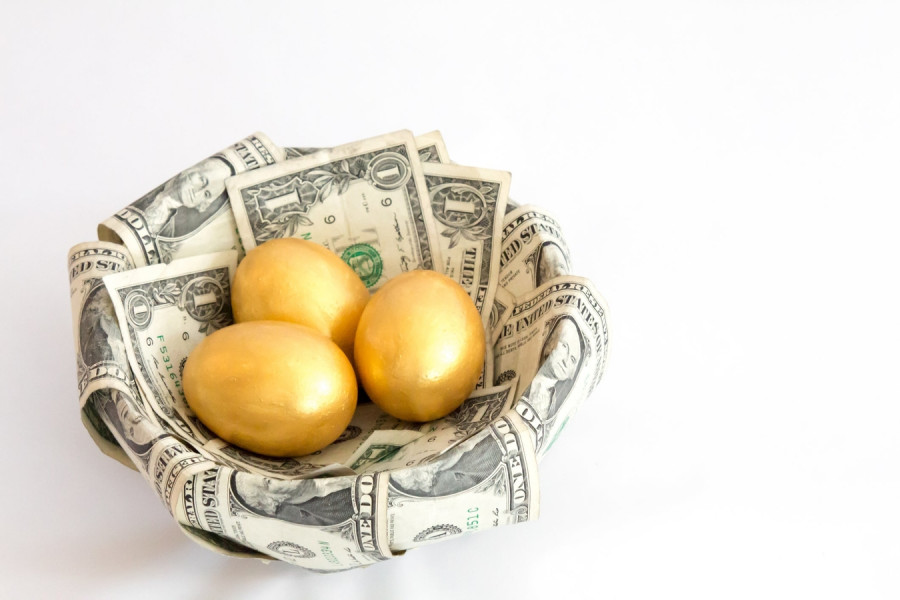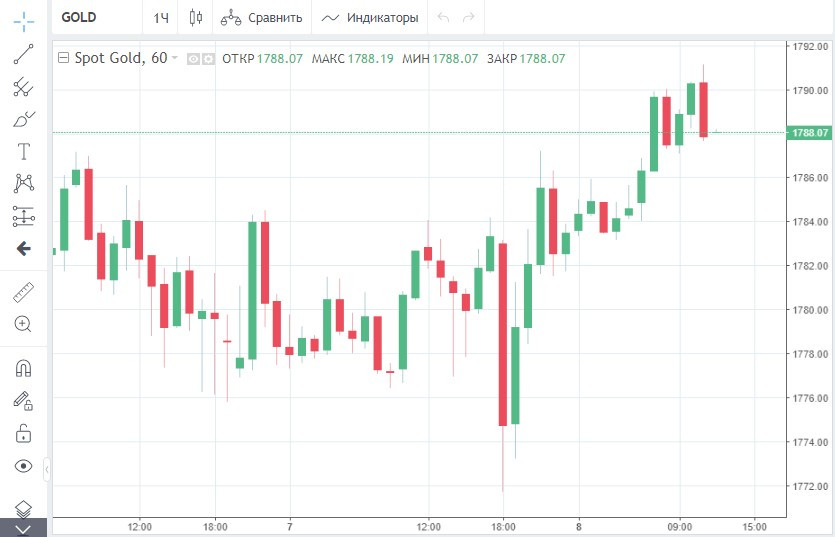The precious metal is on course for its first annual decline in three years. Its main barrier this year has been the strong dollar. Will gold be able to change the placement of forces next year?
On Tuesday, the asset fully regained its losses from the day before. Gold jumped by 0.3%, or $5.20, to reach its highest since November 26 at $1,784.70.
One of the main growth factors for the precious metal was the risk of additional sanctions against Russia due to problems on the border with Ukraine.
US President Joe Biden told Russian President Vladimir Putin on Tuesday that Western economies were concerned that Moscow might start a military conflict with Ukraine. He warned that in the case of such a situation, Russia would face punishment in the form of strong economic sanctions and other measures.
Recent spikes in gold and silver prices "invited a little profit-taking among existing owners," said Adrian Ash, director of research at BullionVault, but "new buyers continue to enter the precious metals markets, taking a position in physical bullion ahead of the New Year."
Yesterday the asset was able to rally despite rising global stock markets, soaring US treasury bond yields and a stronger dollar.
On Tuesday, investors' appetite for risk resumed. Many stocks rose as fears over the new COVID-19 strain eased following a statement from the US infectious disease expert. Anthony Fauci called the Omicron data encouraging.
The market believes that the new strain will not cause a collapse of the global economy and will do less damage than previously thought. As the coronavirus risks diminish, expectations that the US Federal Reserve will accelerate its asset purchases are increasing.
The prospect of a more aggressive strategy by the US regulator is a hotbed for the dollar and the yield on 10-year US bonds. The greenback was up by 0.1% yesterday, hitting 96.422. At the same time, yields also showed a surge to 1.467%.
Investors are now eagerly awaiting Friday's US consumer price index report. Economists are expecting inflation to show its biggest annual increase in decades. Analysts believe that this will put pressure on the Fed to start tightening monetary policy more quickly.
The uncertainty over the US central bank's future course is confusing traders. This is reflected in prices, which have been hovering around $1,780 for several days
"On the one hand, inflation calls for higher gold prices. On the other, rising expectations about tighter monetary conditions in the US, a rebounding stock market and a stronger dollar are all discouraging signs for gold investors," Fawad Razaqzada, market analyst at ThinkMarkets, said. With these conflicting macroeconomic factors in mind, investors do not seem to open bold positions in either direction until the situation becomes clearer.
He added: "Regardless of what happens in the short-term, it won't change my longer-term view, which is that gold remains significantly undervalued."
The long-term appeal of precious metals "as a portfolio and currency hedge looks solid on the financial risks building as 2022 approaches," Adrian Ash, director of research at BullionVault, said.
Analyst also believes that gold will do better than other assets next year as confidence in central banks begins to wane.
"Whether or when the U.S. Fed finally dares to hike, interest rates will remain so far below inflation that confidence in central banks is likely to be critically weakened," Ash said.
Meanwhile, the prospect of a rate hike has been one of the key obstacles holding gold back this year. On the back of bullish sentiment about future stimulus cuts, the dollar has strengthened considerably over the past 12 months.
At the same time, the metal, which is in inverse correlation with the greenback, is preparing to post its worst annual result in 3 years.
Ned Davis Research investment strategist Tim Hayes recently opined that gold will benefit from negative real rates in 2022.
According to him, next year's rate hike is planned in two phases. However, a moderate increase will not be enough to make real rates positive if inflation does start to manifest itself more globally and prove more resilient than they expect.
Hayes says that keeping interest rates low on the back of high inflation could end up weakening the dollar, which is in better condition than the precious metal so far. The US currency is firmly at 96 points, while bullion is swinging this year.
"I'm currently neutral on the dollar, which sort of implies that it stays in its trading range. But I'm bullish on gold," Hayes said. "And on the question of which one is more likely to make a new high — gold or the dollar — I'd say gold," he added.
Contrary to the US dollar, gold has a solid setup going into next year and could reach new all-time highs after consolidating since its August 2020 record highs, Hayes noted. "Gold is likely to hit new record highs as long as this environment remains. And that implies that this is about as good as it gets for the US dollar," he said.
Ned Davis Research predicts that gold will be supported by increased volatility in US stock exchanges in 2022. This year, the biggest market correction has been 5%, but next year, when the Fed starts to raise rates, there is a risk of a more serious rush. As for the dollar, the strategist expects it to fall against the euro in 2022.












